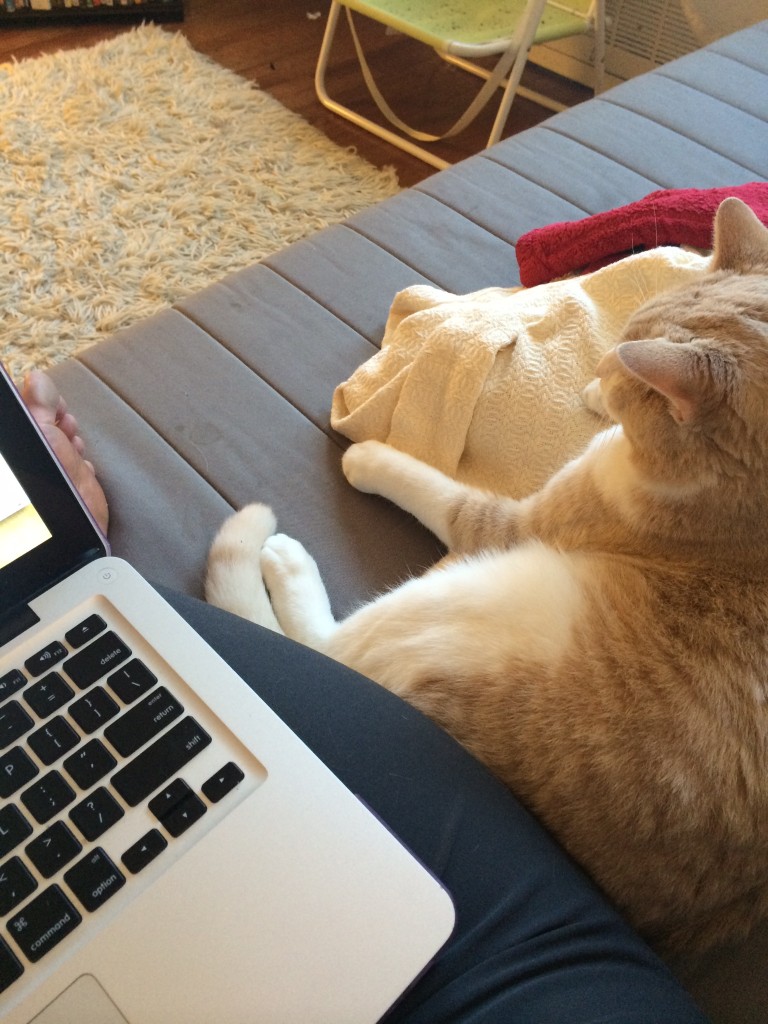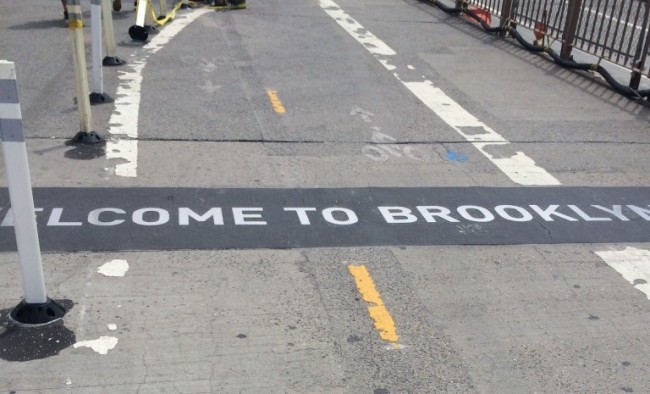
Moving to New York for the summer had seemed, at the time, a good idea. I received a grant, I had wanted to write a novel for as long as I could remember, and this was finally my chance to pursue my interests without any sort of family or work obligation. The problem is that a lot of things seem like a good idea until you actually have to confront them headfirst.
By the time June rolled around and I had considered all the logistics of this project, my dream of becoming a contemporary author someday had been replaced with a crushing sense of self-doubt. Would I actually benefit from such little structure in my days? What if I ran out of money? Inspiration? How would I avoid becoming just another cliché? I was uncomfortable and panicked, but the idea of not pursuing such a project was worse; I had made it this far, and now I had to see what it was like. I finally decided to stop quibbling and just do it. If I failed, I failed, but at least I could say I had tried.
I chose New York because it scared me and it interested me at the same time. I felt like there was such a paradox; the city was so small and cramped and focused, and yet, people had found ways to create space for self-expression and exploration. I wanted to have an adventurous, inspiring, and weird summer, and, let’s be honest, I wasn’t going to find that in the suburbs.

This mindset—the fascination with the city, paired with the just do it attitude—is what got me through the summer. I gave myself a word count goal of 50,000 words, and a promise to myself to at least try to write something every day. And that was it. Armed with a pen and paper (or, more realistically, my laptop and a kickass playlist) and usually a cup of coffee, I sat down each morning and tried to write about things that mattered, things that I had experienced in the city, things that I personally felt were worth the time and energy to read. If my cozy Brooklyn apartment was too familiar, I went to a coffee shop or a bookstore. I often feel most productive in the evenings, so I didn’t set myself to a hardened schedule — I wrote when I felt most comfortable, whether it was 9am or 9pm. I experimented a lot, but I wouldn’t say I got weirdly superstitious or ritualistic. I tried working with others (bad idea), embracing stereotypes about writers (another bad idea), playing with form. I struggled. It finally got better when I decided, in a fit of drunken frustration, to screw it all and just write for myself.
That still wasn’t enough, though. In order to get myself out of my shell, and, you know, “for the story,” I made myself go on adventures. I know, I know—I’m making it sound like an obligation, like, poor me, I have to travel around one of the most interesting cities in the world. To be honest, though, those trips that I took—to Coney Island for the day, F.A.O. Schwarz, Boston, for example—caused me more anxiety than anything. It’s no secret that New York is crowded, and nothing gets me sweaty and generally uncomfortable like crowds. If it was during rush hour, I’d compress myself like shrink-wrap to the nearest subway wall and keep my eyes glued to my phone (even though service was a rarity), counting down the minutes until I could be back in the fresh air with my own space.
Just like anything else, though, I eventually got over that, and it did give me good writing material. Everyone I talked to had an interesting story to tell, whether it was the cotton candy spinner at Coney or the scary model-type chain smokers on the street.
I began to get inspired. Slowly but surely, I started to weave together something that resembled a story. The fact that I didn’t extensively outline beforehand was both a blessing and a curse; sure, the revision process will likely be extensive and painful for me down the road, but I did get the pleasure of sitting down at the table each day and asking myself, “What’s going to happen today?” Some days were less productive than others, and I was hard on myself; I wouldn’t think much of truncating an entire day’s work if I didn’t think it made my piece better. That said, there were some factors that made it easier to stay motivated. I was lucky in that my friends and family were consistently encouraging and supportive to the point where I wanted to show them what I had come up with, instead of being shy and reclusive about my work, as I had always been in the past. Hearing about their summer jobs and internships also proved to be very motivating; I didn’t want to be that girl who had all these resources and yet did nothing with her summer.
By the end of the August, my novel had taken on a completely different form than what I had originally thought it would. I tried hard not to make my draft just another crap “coming-of-age story,” and I ended up with something that was half autobiography, half fiction. As of August 31st, I had 52,383 words and hopes of publishing in the near future. I didn’t make a ton of money or get to network with potential employers this summer, but I did get to create something. And to me, that is still worth celebrating.

***
Excerpt from Creating Space (working title) by Molly Gerrity. July 16, 2014.
I’d spent the past few days sitting at the park bench outside Ezra’s apartment, smoking cigarettes and thinking, maintaining a stiff frown so that no one would approach me. I used to love this time of year, autumn, when the leaves make slick bronze patterns in the street and cars have to keep their lights on all day and a cup of hot tea has the power to warm even your insides, but I couldn’t appreciate it in the ways that I knew I would if I had someone else to appreciate it with me.
On the outside, New York had been good to me. I parted my hair in the middle, wore dark vampy lipstick and black jeans like the trendy rich girls. I’d mastered the subway and found the cheapest places in the city to get good coffee and good books. But the biggest triumph I’d accomplished in New York had been to occupy less space; I tried to be softer, smaller, less awake, less loud. If my mom knew what had happened to me, I knew she’d shake her head. You can’t make a home if you’re unhappy, Aurora. You have to find the people who make life worth living. Too bad I hadn’t bothered to find people here who did that to me. In some ways, New York had torn my faith to shreds. Or maybe I never had any to begin with. Some days it was hard to decipher the difference between who I expected to become and who I actually was. I was trying not to belittle the old me and the decisions she made, the person she thought she was, just saying that I had foolish expectations. I was not 16 anymore but my fears were all still there.
I lit another cigarette and walked around the neighborhood. When I first got here, I made a point of wandering the city, especially at different times of the day. I wanted to know New York intimately, not just Times Square or Central Park or the four stark walls of the apartment. But now I felt like the more time I spent here, the less I understood. One thing I did know: I didn’t love Ezra anymore. I wasn’t sure when it happened or why it happened. I knocked on my bones and felt hollow, I called for him and he didn’t respond. I couldn’t say I love you without my eyes drifting to the side and my tongue slurring on the edges of the words, fear and doubt and confusion burning at my throat. In those recent weeks, I rediscovered what it meant to be alone, that I could not possibly occupy all of the lives that I wanted. I imagined the scenario of me telling him this, over glasses of orange juice and dusty sunlight. The look of hurt on his rosy cheerful face, even projected as it was, was enough to make me absolutely hate myself. He could still make me feel things. I wanted him and I didn’t want him. Fuck me, I was full of contradictions.
Photo credits: Molly Gerrity
